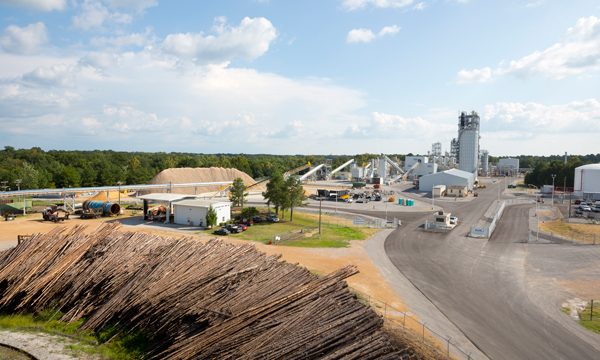Former KiOR board member says biofuel company could still succeed

FROM TREES TO FUEL: KiOR’s Columbus, Mississippi plant is designed to turn biomass into gasoline and diesel fuel.
By Steve Wilson | Mississippi Watchdog
A former KiOR board member said the taxpayer-subsidized company’s struggles have nothing to do with the ground-breaking technology.
Paul O’Connor, a chemical engineer who was one of the developers of the process used by KiOR to convert wood chips into gasoline and diesel fuel, said the technology is sound, but the application by KiOR’s management wasn’t workable to attain their production goals. He resigned from the board last month.
“The biggest frustration is this is not a bad technology,” O’Connor said. “It can work. You have to do it in the proper way. I hope KiOR will get that chance. I don’t know what is going on with Guggenheim (Securities, an investment bank) and looking for new investors. It would be a pity if a technology like that goes down the drain.”
KiOR’s finances are in a dire state.
Guggenheim has until Oct. 31 to help find a buyer for the company or new investors. The Texas-based biofuels company owes Mississippi more than $69 million on a no-interest loan and was delisted from the NASDAQ stock exchange last week after its stock price fell below the minimum bid price of $1 per share. The final price for KiOR shares were 10 cents.
The company said it won’t appeal NASDAQ’s decision.
“This is definitely not good,” said Bill Brister, assistant professor of finance at Millsaps College. “This company has had $600 million in losses and they attribute that to startup costs. They definitely need to start making a profit. They need to find some more investors or a buyer, but the buyer might have to assume some of their debt.”
KiOR made $312,000 in the first six months of 2014 after selling 99,000 gallons of gasoline, diesel and fuel oil, well below the plant’s stated capacity of 13 million gallons per year.
KiOR said in its latest amended 8-K filing with the SEC it “intends to continue to vigorously respond to allegations by Mr. O’Connor that it considers to be false, misleading or inappropriate and is currently considering all of its options, including the possibility of legal action against Mr. O’Connor.”
It accused him of “withholding a third-party technology report,” paid for by the company, from the board and management and “unauthorized communications with persons during the course of the outside counsel review. The filing even indicated “the possibility that Mr. O’Connor failed to comply with the company’s insider trading policy.”
“It’s all come out on the Internet, which was never my intention,” O’Connor said of his memos and resignation letter. “I have no regrets, because everything there is the way I see it, because it is the way I truthfully see it.”
KiOR might be the crowning achievement of green energy failures in Mississippi during the administration of then-Gov. Haley Barbour. Taxpayers lost more $26 million in 2012 on a loan to Twin Creeks Solar, which bought an 85,000-square-foot facility that is now owned by the state.
The biofuels company owes Mississippi $69.275 million on a no-interest loan to build a first-of-its-kind plant to convert wood pulp into gasoline, fuel oil and diesel fuel in Columbus in eastern Mississippi. It missed its most recent semi-annual payment of $1.875 million to the state, which granted an extension June 3. The period ends Oct. 31.
The company’s most recent quarterly report is dire. KiOR won’t be able to meet its obligations, without additional financing, after Tuesday. The company has lost $24 million in the past quarter and $629.3 million since the company was founded in 2007.
The Columbus plant, which has been in an “idled state,” costs from $6 million to $10 million to run annually. In the filing, the company said revenue from the Columbus plant, if restarted, will be “limited and unpredictable, at least in the near term.”
Get regular updates on Mississippi through our Facebook or Twitter accounts







